Ancient Greece was a civilization that flourished from around 800 BCE to 500 CE and had a profound impact on Western culture. The ancient Greeks are known for their achievements in politics, philosophy, science, and the arts. They were a maritime people and their ships enabled them to establish colonies throughout the Mediterranean and Black Sea regions.
The political system of ancient Greece was made up of small city-states, each with its own government. The most famous of these city-states was Athens, which is known for its democratic system of government. The philosopher Aristotle tutored Alexander the Great, who went on to conquer much of the ancient world and spread Greek culture far and wide.
Ancient Greece, a cradle of Western civilization, thrived from the 8th century BCE to the 4th century BCE. During this remarkable period, Greece was home to a collection of influential city-states, each with its own distinct character and governance. The likes of Athens, the birthplace of democracy, and Sparta, renowned for its military prowess, stood out. This era witnessed profound intellectual advancements with legendary philosophers like Socrates, Plato, and Aristotle shaping the foundations of Western philosophy. Greek art and architecture flourished, exemplified by iconic structures like the Parthenon, while the birth of theater gave rise to playwrights like Aeschylus, Sophocles, and Euripides.
The 5th century BCE marked the pinnacle of Classical Greece, often referred to as the Golden Age. Under the leadership of Pericles, Athens emerged as a cultural and intellectual epicenter. This era produced timeless works in literature, including the epics of Homer and the histories of Herodotus and Thucydides. The Olympic Games became a symbol of Greek unity and athleticism. It was a time of flourishing creativity, where art, sculpture, and pottery reached unprecedented heights, leaving a profound legacy that continues to inspire the world today.
The Hellenistic period that followed, after the conquests of Alexander the Great, extended Greek culture far and wide, blending it with diverse civilizations across Asia, Africa, and the Mediterranean. Greek ideas, language, and art left an indelible imprint on the world, creating a fusion of cultures known as Hellenistic civilization. This period also witnessed the growth of scientific knowledge and the famous library in Alexandria. Ancient Greece's enduring legacy continues to shape modern society, from the principles of democracy and philosophy to its artistic and architectural achievements, making it a timeless beacon of human achievement and creativity.
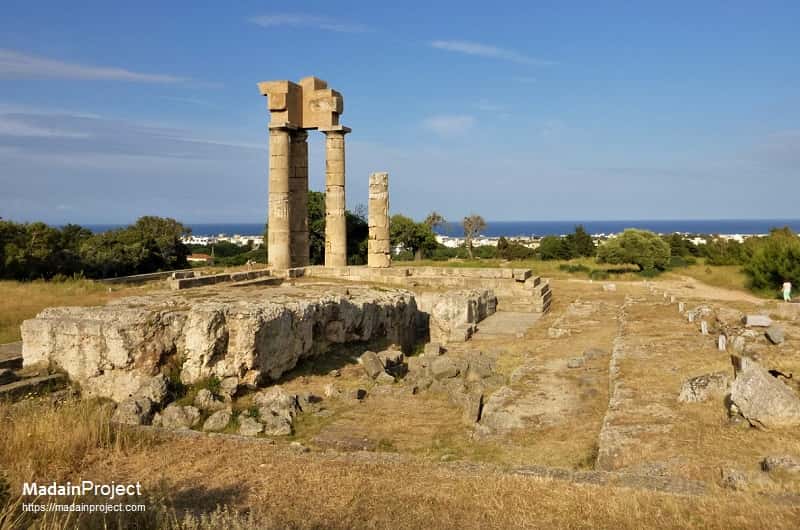
Perched atop a hill overlooking the azure waters of the Aegean Sea, the remarkable archaeological site of Rhodes Acropolis beckons travelers and historians alike to explore its grandeur, with a history dating back to antiquity. Read more
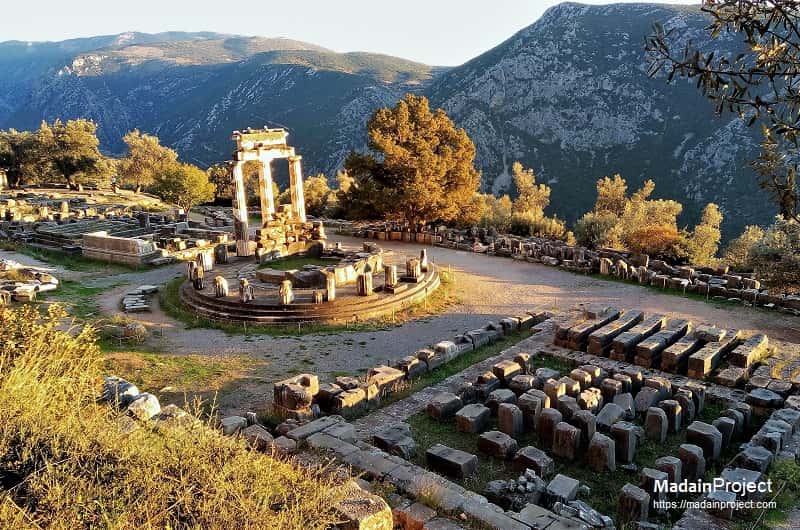
The sanctuary of Delphi, with its magnificent Temple of Apollo and the renowned Oracle of Delphi, served as a spiritual and cultural hub for centuries, drawing pilgrims, leaders, and philosophers from across the Mediterranean. Read more

This ancient citadel, situated on the island's eastern coast, encapsulates centuries of history, embodying the legacies of the Greeks, Romans, Byzantines, Knights of Saint John and Ottomans who have left their mark on this breathtaking site. Read more
The caryatids are located on the porch of the Erechtheion, which is known as the "Porch of the Maidens". This porch is supported by six columns in the form of the caryatids, each of whom is carved in high relief and depicts a young woman wearing a flowing dress. The caryatids are each unique, with individual facial expressions and different details in their clothing and hair. These caryatids, six in total, are carved in the likeness of young women and are depicted wearing long, flowing dresses.

This sacred sanctuary, surrounded by verdant forests and rolling hills, was the birthplace of the ancient Olympic Games, which originated in 776 BCE. The heart of Olympia is its ancient stadium, an earthen track where Greek athletes competed. Read more
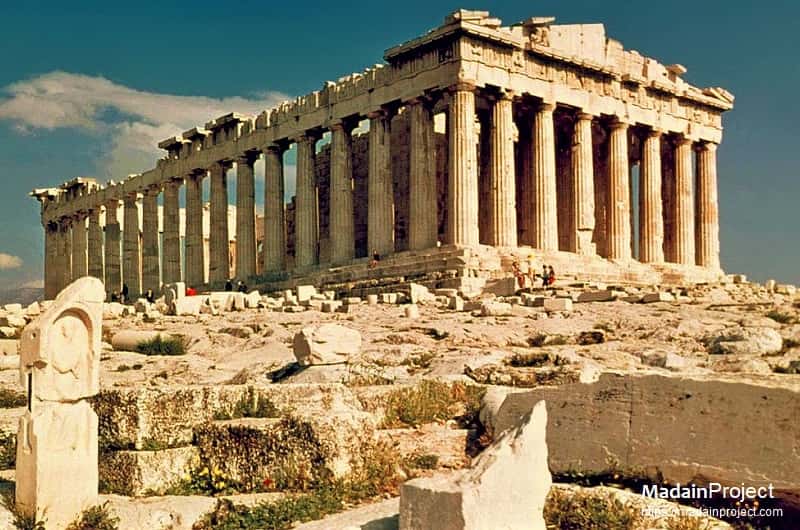
The archaeological site of ancient Acropolis of Athens encapsulates not only the splendor of Greek antiquity but also the profound influence of this ancient civilization on art, philosophy, democracy, and the very foundations of Western civilization. Read more

This legendary city, with its imposing Cyclopean walls, regal Lion Gate entrance and extensive mythical connections, is believed to have been a powerful and influential center of the Mycenaean civilization during the late Bronze Age. Read more
As the largest and best-preserved of all the Minoan palaces, Knossos offers a unique glimpse into a civilization that flourished between 2000 and 1450 BCE, predating the great civilizations of Mycenae and Troy. Its intricate layout, sophisticated architectural design, and the wealth of artifacts unearthed from its labyrinthine corridors have rewritten the history books and shed light on the astonishing achievements of the Minoans.

The city-state of Athens, flourishing during the classical era of Greece, introduced the world to the foundations of democracy, where citizens actively engaged in civic affairs, laying the groundwork for modern democratic systems. Dominating the cityscape, the Acropolis, an iconic rocky hill adorned with magnificent temples, epitomizes the grandeur of classical Greek architecture. Read more

Revered as the mythological birthplace of Apollo and Artemis, the island of ancient Delos was considered sacred in antiquity and served as a bustling religious and commercial center. At its zenith during the Hellenistic period, Delos was home to a vibrant multicultural community. Read more
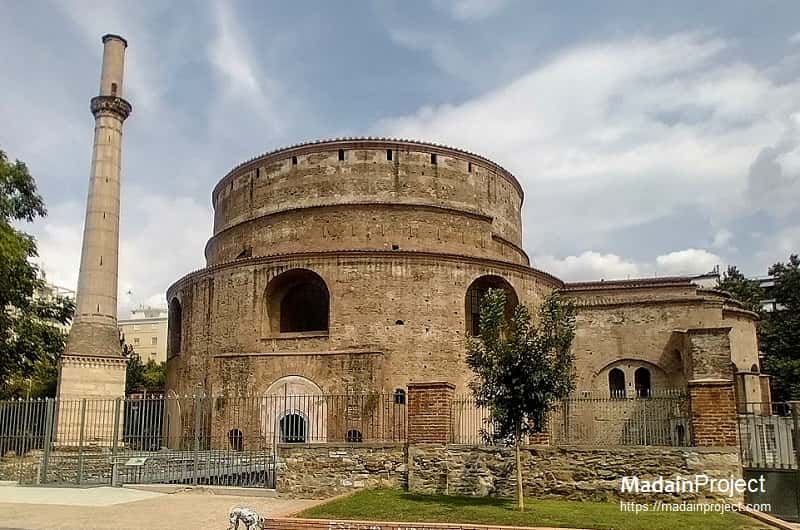
Thessaloniki, also known as Thessalonica, Saloniki, Salonika, or Salonica, was founded in 315 BCE by Cassander of Macedon, who named it after his wife Thessalonike, daughter of Philip II of Macedon and sister of Alexander the Great. Today the modern city of Thessalonica is the capital of the geographic region of Macedonia, the administrative region of Central Macedonia and the Decentralized Administration of Macedonia and Thrace. Read more

With origins tracing back to ancient Greece, the historic Acrocorinth fortress, evolved into a formidable stronghold during the Roman era, and its fortifications continued to expand through the Byzantine, Medieval, and Ottoman periods. Within its imposing walls, a rich tapestry of history unfolds, with remnants of temples, churches, cisterns, mosques, and defensive structures. Read more

Ancient Messene, located in the southwest Peloponnese, was a major city-state founded in 369 BCE by the Theban general Epaminondas after his victory over Sparta. It was established as a free city for the Messenian people, previously subjugated by the Spartans, and named after the mythological Messene, the daughter of Argos's King Triopas. Built in a strategic and fertile area, Messene symbolized independence from Spartan dominance and became a prominent cultural and political center with a sophisticated city layout, including extensive fortifications, sanctuaries, a theater, and a stadium. Read more

Ancient Sparta, located in the Laconia region of the Peloponnese, was one of the most influential city-states of classical Greece, known for its unique social structure and military discipline. Unlike other Greek city-states with monumental public buildings, much of Spartan society centered around austere living and a focus on martial prowess, leaving behind fewer grand structures than places like Athens. Excavations reveal ruins of significant historical buildings, including the Temple of Athena Chalkioikos, which stood atop the acropolis, and a Hellenistic theater. Read more

Cape Sounion, located on the southern tip of the Attica Peninsula in Greece, is best known for the impressive Temple of Poseidon, one of the most iconic sanctuaries in ancient Greece. Dating back to around 444 BCE, the temple is dedicated to the god of the sea, Poseidon, who was highly venerated by ancient Greeks, especially given Sounion’s prominent coastal position. This landmark stands on a high cliff overlooking the Aegean Sea, providing panoramic views that have captivated travelers and inspired myths, particularly the tale of King Aegeus, who is said to have leapt to his death from these cliffs, giving the Aegean Sea its name. Read more

Crete’s history stretches back to the 7th millennium BCE, predating the Minoan civilization, which emerged around 3000 BCE as Europe’s first advanced society. Known for its art, architecture, and palatial centers like Knossos, the Minoans left an enduring legacy in the Aegean. After the Minoan collapse, Crete evolved into a network of Greek-influenced city-states during the Iron Age. Its strategic location led to successive occupations: it became a Roman province in the 1st century BCE, part of the Byzantine Empire, and later a Venetian stronghold, fostering trade and cultural exchange. Read more

Ancient Corinth was a powerful city-state in Greece, located on the narrow isthmus connecting the Peloponnese to mainland Greece. Its strategic position made it a center of commerce, culture, and military influence, especially during the Classical and Hellenistic periods. Corinth was known for its wealth, largely derived from trade facilitated by its two ports, Lechaeum and Cenchreae, which connected it to the Mediterranean Sea. The city became famous for its luxurious lifestyle, art, and architecture, particularly the Temple of Apollo, one of the earliest stone-built Doric temples in Greece. Read more

The Harbour of Lechaeum was the primary port of ancient Corinth, strategically situated on the Corinthian Gulf. Unlike its eastern counterpart, Cenchreae, Lechaeum was more significant for Corinthian trade interests focused on the western Mediterranean. The harbour was developed around the seventh century BCE, with artificial basins excavated to create a sheltered space for ships, as there was no natural harbour in the area. Lechaeum facilitated extensive trade and maritime activities, linking Corinth with various regions, including Italy, Sicily, and other Mediterranean ports. Read more

The Isthmus of Corinth, a vital land bridge in Greece, has been a key focal point throughout history due to its strategic significance. The region's importance is underscored by the flourishing city-state of Corinth, which emerged as a cultural and economic powerhouse, renowned for its maritime trade and the celebrated Isthmian Games held in honor of Poseidon. Archaeological discoveries, including temples, athletic facilities, and residential areas, offer a glimpse into the vibrant life of this ancient city-state. Read more

The Isthmia Sanctuary, an ancient religious site dedicated to Poseidon, is located on the Isthmus of Corinth in Greece. This significant archaeological site was once a bustling center for worship and athletic competition, renowned for hosting the Isthmian Games, which were second in importance only to the Olympics. The sanctuary is home to the remains of a grand temple, built in the Doric style, which underwent reconstruction after being damaged in a fire. Excavations at Isthmia have unearthed a wealth of artifacts, including pottery, inscriptions, and architectural elements, shedding light on the cultural and religious practices of the ancient Greeks. Read more
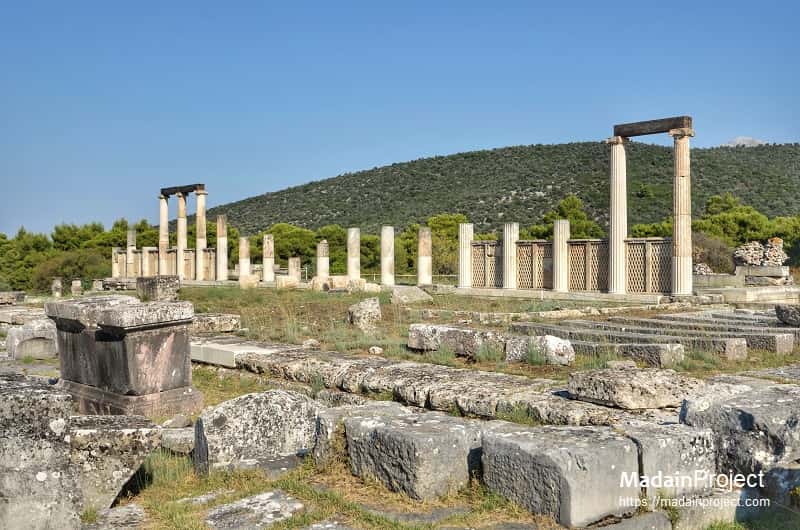
Ancient Epidaurus, located on the eastern coast of the Peloponnese in Greece, is an archaeological site that bears witness to the splendor of the ancient Greek world and its profound influence on medicine, theater, and culture. Read more

The Menelaion is an ancient cultic shrine site near Sparta, traditionally associated with the hero Menelaus and his wife Helen of Troy. It features a sanctuary built during the Mycenaean period and later modified in the Archaic and Classical periods. The site contains remains of structures, including a shrine and offerings, suggesting it was a place of worship and commemoration. Excavations have uncovered pottery, figurines, and other artifacts that provide insights into Mycenaean and Spartan religious practices. Read more

The ancient city of Thera, established around the 9th century BCE, was a bustling Minoan settlement that thrived for several centuries. Around 1600 BCE, a catastrophic volcanic eruption reshaped the island's landscape, causing a massive caldera to form. Read more

Strategically located in the Saronic Gulf, Aegina rose to prominence as a powerful naval power and a significant commercial center in antiquity. Its archaeological landscape, rich with monumental structures, including temples dedicated to key deities like Apollo and Aphaia, as well as residential and civic buildings, reveals the island's evolving political, religious, and cultural life. Excavations continue to uncover valuable insights into Aegina's Bronze Age origins, its transformation during the Archaic and Classical periods, and its eventual decline under Roman and Byzantine influence. Read more

The archaeological site of Menelaion comprises of three hills, Profitis Ilias, Aetos, and the northern hill. Notable archaeological structures and artefacts have been discovered, including a shrine to legendary Helen and Menelaus, Minoan palatial complex, pottery deposit and a church. The activity on the site dates back to at least Late Helladic IIIB or IIIC (circa 1600–1050 BCE). Read more
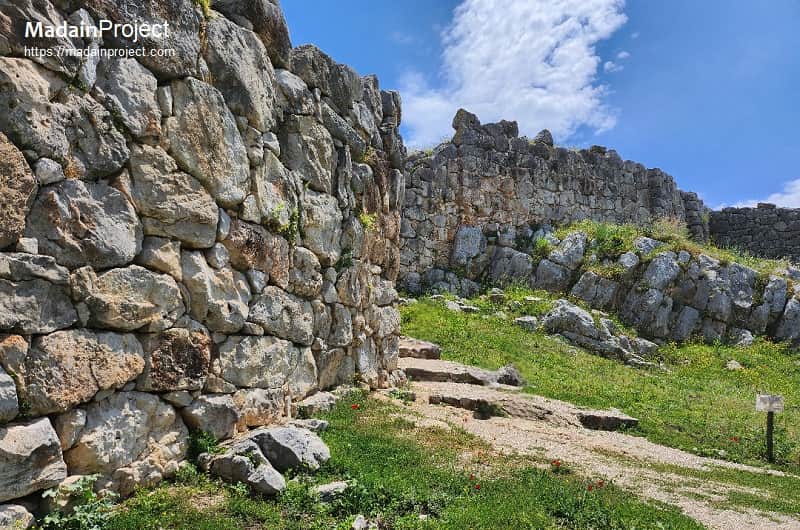
Tiryns is an ancient citadel in the Argolid region of the northeastern Peloponnese, celebrated for its monumental Cyclopean walls and its role as a major center of Mycenaean civilization. Situated on a rocky hill that commands the surrounding plain, Tiryns flourished during the Late Bronze Age (circa 1600–1100 BCE), serving as a fortified palace complex and administrative hub. The site’s architecture, including massive fortifications, intricate palace layouts, and carefully planned water management, demonstrates the advanced engineering and urban planning of its inhabitants. Read more
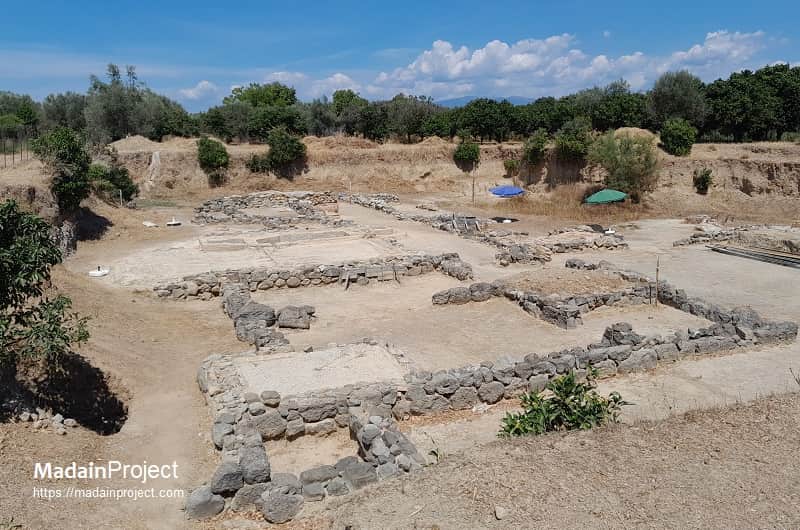
Helike was an ancient Greek city in the region of Achaea in the northern Peloponnese. It was situated about two kilometres (12 stadia) inland from the Gulf of Corinth, near the city of Boura. Helike was destroyed and submerged by a catastrophic earthquake and tsunami in the winter of 373 BCE. Read more
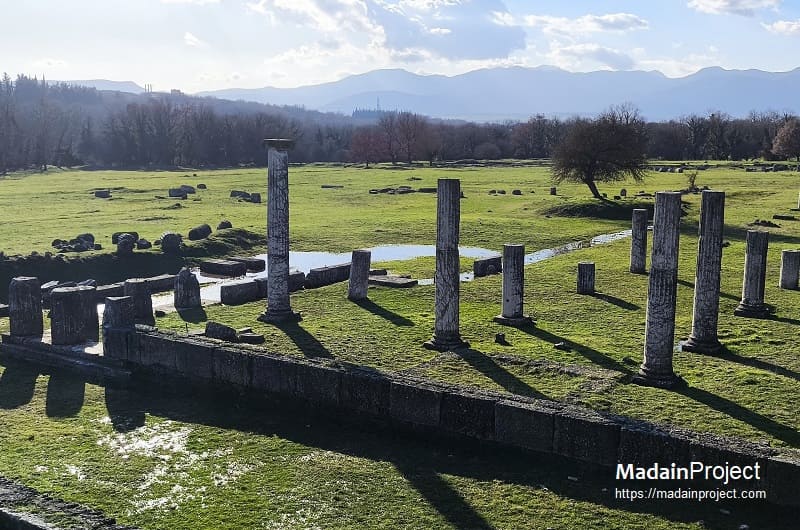
The city was established in the context of the reorganization of power in the Peloponnese following the weakening of Sparta and was designed to operate as a strategic, military, and ideological counterbalance to Spartan influence. Its scale, planned urban layout, and concentration of federal institutions reflected its role as both the administrative seat of Arcadia and a symbolic expression of collective Arcadian identity within the Greek world. Read more

Lerna, located near the modern town of Argos in the northeastern Peloponnese, is an important archaeological site renowned for its significance in the prehistoric Aegean world. It was a major center during the Early Bronze Age, particularly associated with the development of the Mycenaean civilization. The site is best known for the "House of the Tiles", a large structure with a unique tiled roof that is considered one of the earliest examples of complex architecture in Greece. Read more
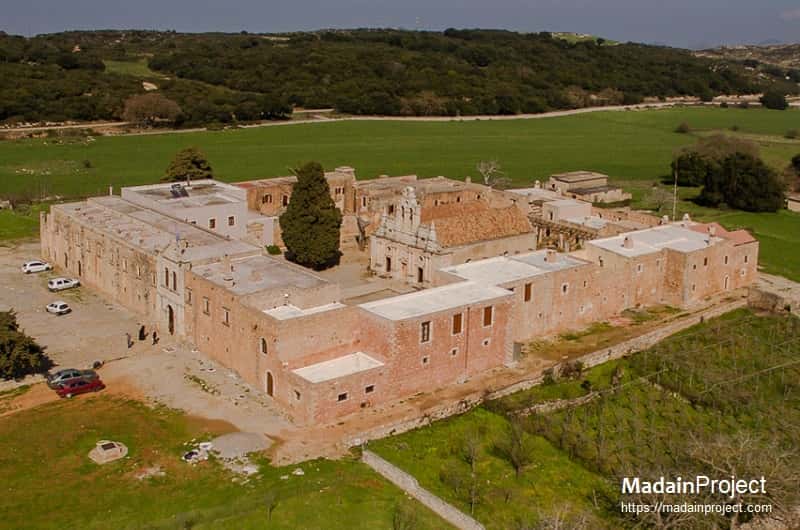
The Arkadi Monastery, located on the Greek island of Crete, is both a historical monument and an important symbol of resistance. Dating back to the 16th century, the monastery reflects Venetian architectural influences and stands atop a plateau surrounded by olive groves. Its central church, or katholikon, was dedicated to Saints Constantine and Helen and was built in the baroque style, making it one of Crete's most impressive examples of Renaissance architecture. Read more
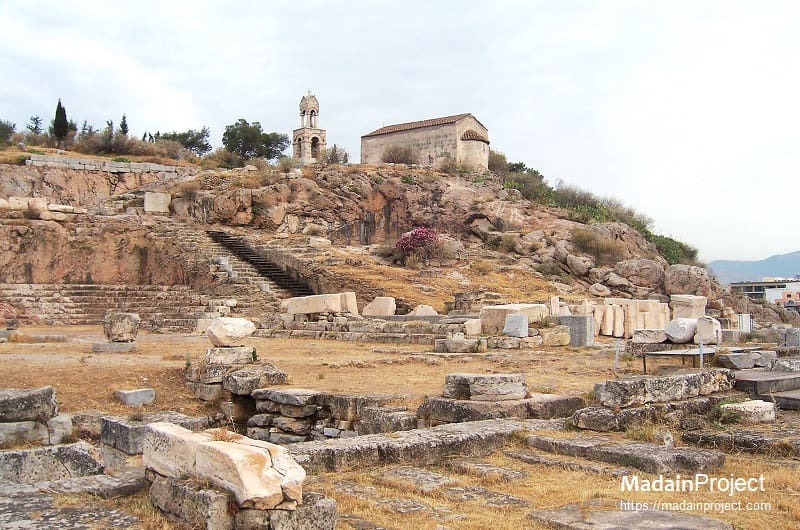
Eleusis (modern Elefsína) is one of the most storied ancient cities in Greece, located about 18 kilometers west of Athens. It was the site of the Eleusinian Mysteries, one of the most important and secretive religious rites of ancient Greece. This cult was dedicated to Demeter and Persephone and was rooted in the myth of Persephone’s descent to the underworld, symbolizing the cycles of life, death, and rebirth, along with the fertility of the earth. The ceremonies of the Eleusinian Mysteries drew participants from across the Greek world, with promises of spiritual enlightenment and the possibility of an afterlife. Read more
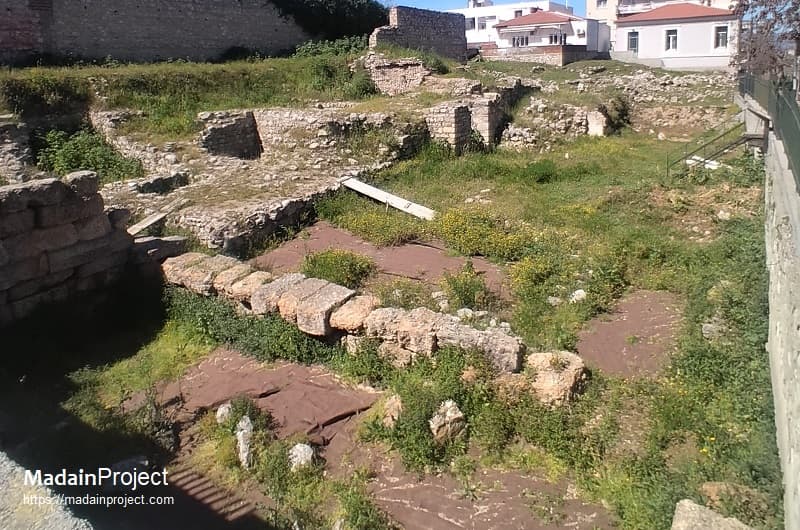
Thebes (modern-day Thíva), one of Greece's oldest and most significant ancient cities, is steeped in mythology and history. Located in the region of Boeotia, Thebes played a central role in Greek mythology as the birthplace of famous figures like Hercules and the setting for tragic tales such as the story of Oedipus. Archaeological evidence shows that Thebes was inhabited as early as the Bronze Age, and it became a powerful Mycenaean center by the 14th century BCE, complete with fortifications and elaborate palatial structures. Read more
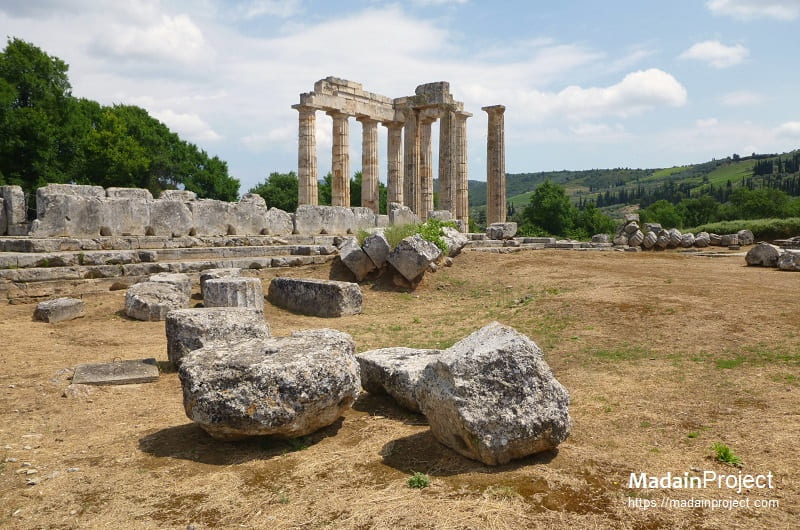
Nemea, located in the northeastern Peloponnese, is an ancient site best known for its rich archaeological heritage and its historical significance as the site of the Nemean Games, one of the four major athletic festivals of ancient Greece. The archaeological site of Nemea contains impressive remnants of the ancient sanctuary dedicated to Zeus, including the Temple of Zeus, which was built in the 4th century BCE. This temple is notable for its six surviving columns and beautiful stonework. Read more
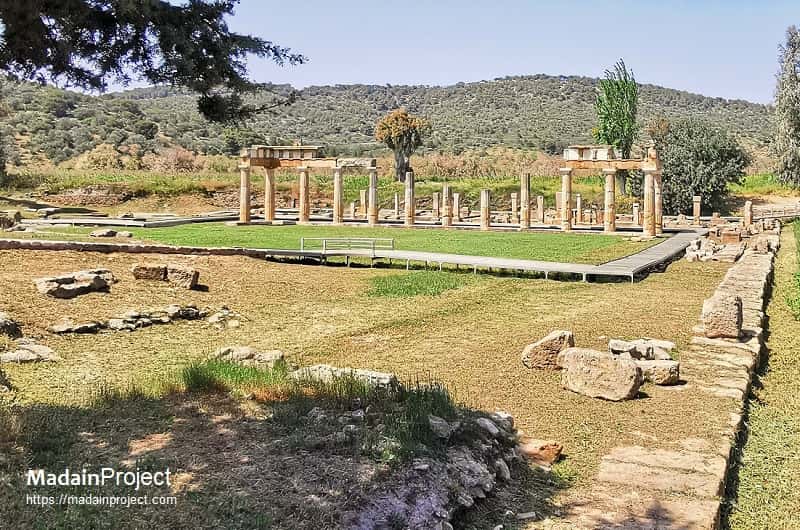
Ancient Brauron, situated in the eastern part of Attica in Greece, was dedicated to the worship of the goddess Artemis, particularly in her role as the protector of young girls and the guardian of childbirth. The heart of ancient Brauron was its sanctuary dedicated to Artemis Brauronia. Read more
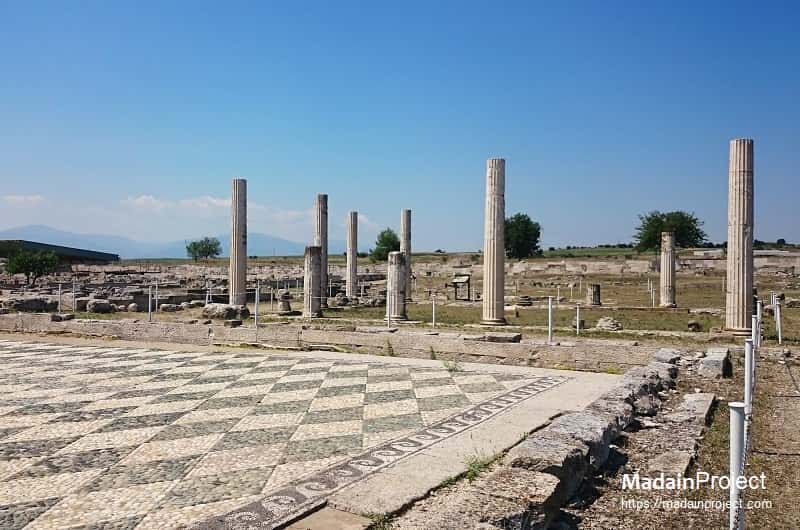
Ancient Pella, located in the region of Macedonia in northern Greece, was the capital of the Macedonian Kingdom and the birthplace of Alexander the Great. Founded in the late 5th century BCE by King Archelaus, Pella quickly rose in prominence and replaced the older capital, Aigai (modern Vergina), as the political and cultural center of the Macedonian realm. Known for its innovative urban design, Pella featured a grid-like street system with elaborate water supply and drainage, making it one of the earliest examples of urban planning in the ancient Greek world. Read more
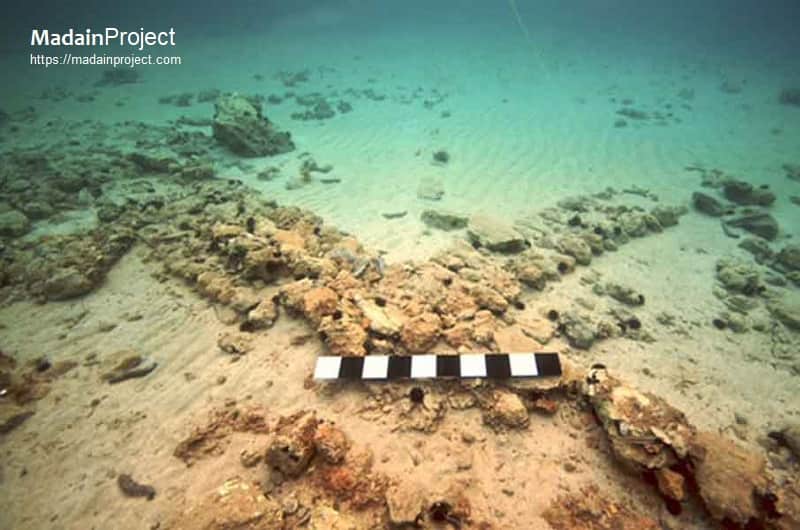
The submerged city of Pavlopetri (Παυλοπέτρι), submerged around 1000 BCE, is the oldest submerged city known in the world. Read more
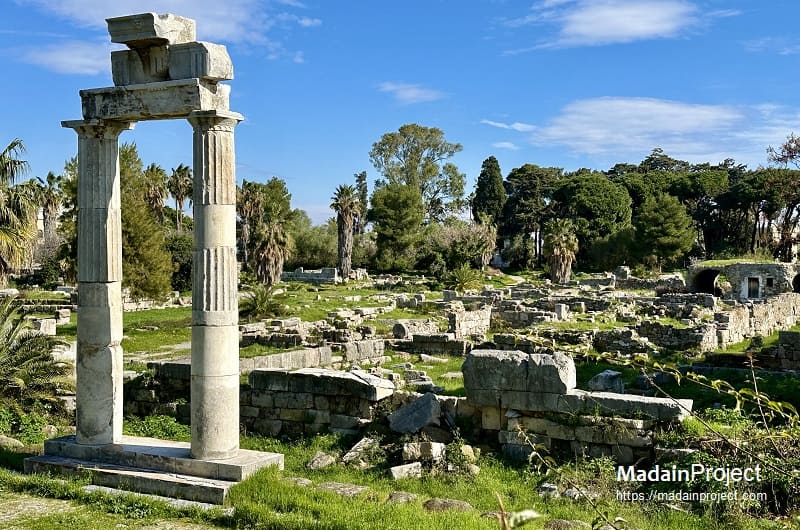
Cos or Kos (Κῶς) was a city of ancient Greece on the island of the same name. In 366 BCE, the inhabitants of the town of Astypalaea abandoned their town to populate Cos. Cos was a member of the Dorian Pentapolis, whose sanctuary was on the Triopian promontory. Under the Athenian rule it had no walls, and it was first fortified by Alcibiades at the close of the Peloponnesian War. Read more
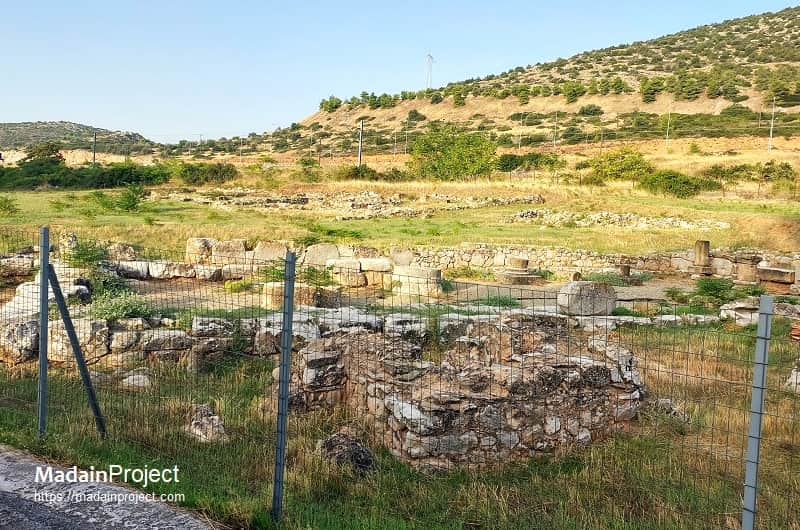
Ancient Aulis (Αὐλίς) was an ancient port town on the coast of the Euboean Gulf in Boeotia, central Greece. In antiquity, it served as a small maritime settlement and anchorage point opposite the island of Euboea. The site’s historical and mythological significance derives chiefly from its association with the Greek expedition against Troy, as described in Homeric and later epic traditions. Read more
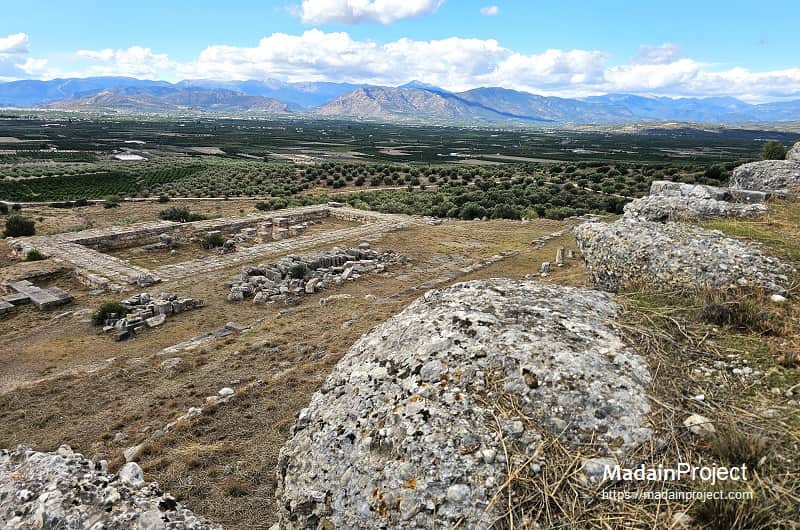
The Heraion of Argos was a pivotal pan-Argive sanctuary, strategically situated on tiered terraces between the dominant polities of Argos and Mycenae. Its complex history is layered, with archaeological evidence revealing occupation from as early as the Neolithic period, followed by significant Mycenaean funerary activity, suggesting a long-standing sacred significance to the locale. The sanctuary's monumental development began in the Geometric period, as evidenced by a substantial Cyclopean-style retaining wall, signaling the site's importance within the emerging state of Argos. Read more

Ancient Aegae was a principal city of Lower Macedonia and the earliest known capital of the Macedonian kingdom, occupying a strategic position at the foothills of the Pierian Mountains in northern Greece. Established by the Argead dynasty, Aegae functioned not only as a political center but also as the dynastic and ceremonial heart of Macedonian kingship, serving as the site of royal burials, assemblies, and religious rites. Read more
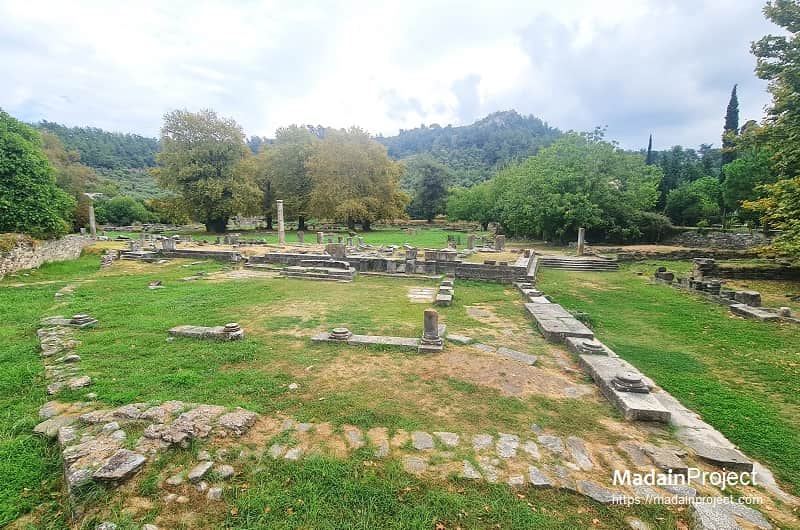
Ancient Thasos, a resource-rich island strategically located in the northern Aegean, evolved from a prehistoric settlement into a powerful economic and cultural center. Originally inhabited by Thracian tribes, the island was colonized by Ionian Greeks from Paros around 650 BC, drawn by its lucrative timber, marble, and gold mines. During the Archaic period, Thasos flourished, establishing a colonial empire on the adjacent Thracian mainland (known as the peraia) that further enriched the island through the exploitation of mainland resources, particularly gold deposits near Mount Pangaeum. Read more
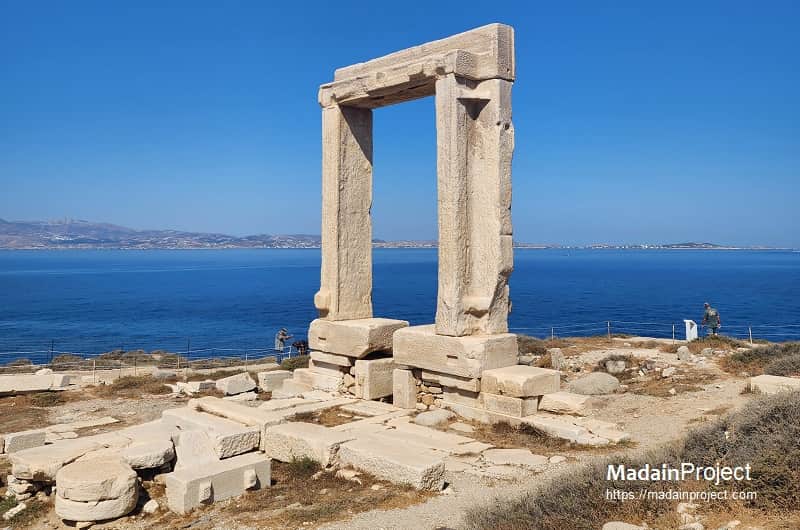
Ancient Naxos, the largest island in the Cyclades, was a major cultural and economic hub in the ancient Aegean from the Early Cycladic period through the Hellenistic era. In the third millennium BCE, Naxos was a central locus of the Cycladic culture, evidenced by its distinctive marble figurines and stone vessels, which were crafted from the island's abundant marble and exported throughout the Aegean. Read more
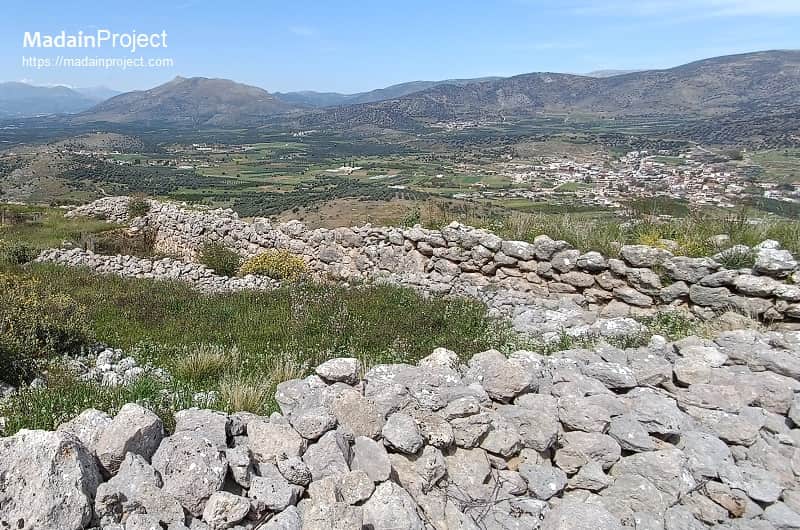
was a significant Mycenaean citadel located in the Argolid, a region in the northeastern Peloponnese of Greece. Alongside Mycenae and Tiryns, it was one of the three most important and heavily fortified centers of the Mycenaean civilization in the region. The acropolis sits atop a steep hill, offering a strategic view of the Argive plain. Read more
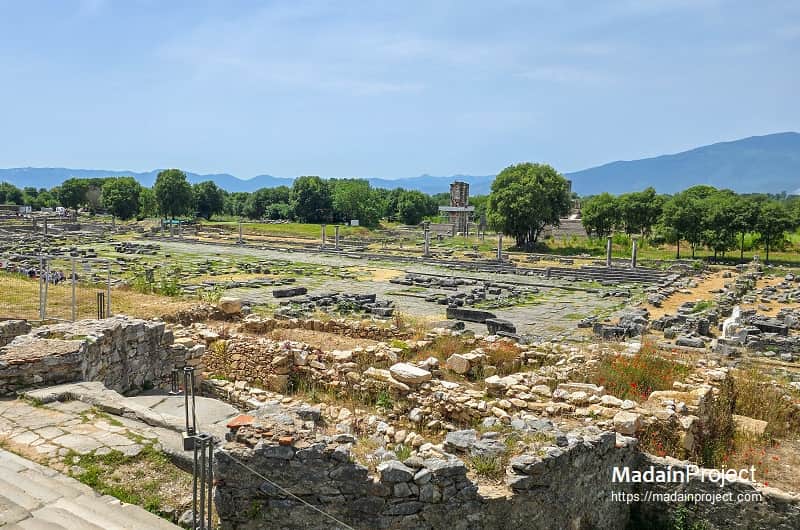
Ancient Philippi, strategically located in northeastern Greece along the Via Egnatia, represents a critical nexus of Hellenistic, Roman, and early Christian history. Originally founded as Crenides by Thasian colonists in 360 BCE, the settlement was soon fortified and renamed by Philip II of Macedon, who exploited the nearby gold mines of Mount Pangaeum to fund his military campaigns. Read more
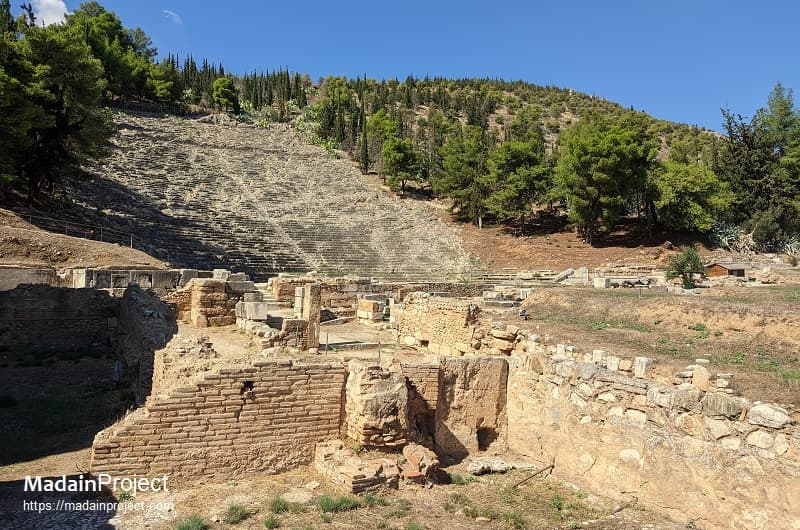
Ancient Argos, one of the oldest continuously inhabited cities in Greece, played a significant role in the history and culture of the region. Located in the northeastern part of the Peloponnese, Argos was a powerful city-state during the Mycenaean era and later became a major center for art, philosophy, and politics in classical antiquity. Known for its contributions to sculpture and architecture, Argos is home to impressive archaeological sites, including the Heraion, a sanctuary dedicated to the goddess Hera. Read more
Focusing on the development of the Greek city-state and the society, culture, and architecture of Athens in its Golden Age, Thomas R. Martin integrates political, military, social, and cultural history in a book that will appeal to students and general readers alike. Now in its second edition, this classic work now features new maps and illustrations, a new introduction, and updates throughout.
See on Amazon
Greek Art and Aesthetics in the Fourth Century B.C. analyzes the broad character of art produced during this period, providing in-depth analysis of and commentary on many of its most notable examples of sculpture and painting. Taking into consideration developments in style and subject matter, and elucidating political, religious, and intellectual context.
See on Amazon
The ancient Greeks invented democracy, theater, rational science, and philosophy. They built the Parthenon and the Library of Alexandria. They wrote down the timeless myths of Odysseus and Oedipus, and the histories of Leonidas’s three hundred Spartans and Alexander the Great. But understanding these uniquely influential people has been hampered by their diffusion across the entire Mediterranean.
See on Amazon
Lord Byron described Greece as great, fallen, and immortal, a characterization more apt than he knew. Through most of its long history, Greece was poor. But in the classical era, Greece was densely populated and highly urbanized. Many surprisingly healthy Greeks lived in remarkably big houses and worked for high wages at specialized occupations.
See on Amazon
Signup for our monthly newsletter / online magazine.
No spam, we promise.